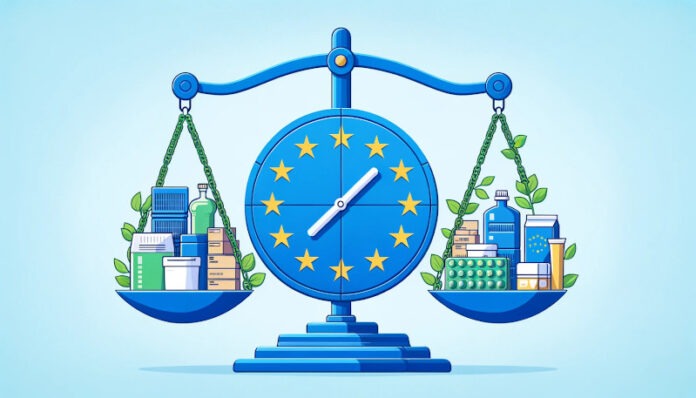Over 100 associations representing the European packaging industry have written a letter to EU Member States to express their concern that the current approach of the PPWR (the proposed Packaging and Packaging Waste Regulation) could undermine the European single market by “turning back the clock on the Green Deal” .
According to the organizations – which include MedTech Europe (Association of the European Medical Technology Industry), EDIAF (European Petfood Association), AIC (Associação dos Industriais de Cosmética, Perfumaria e Hgie Corporal), Cosmetics Europe, AIM – European Brands Association – the proposal under discussion leaves too much room for individual governments to introduce national trade barriers which could undermine the very foundations of the European single market.
The environmental impact of packaging
The PPWR (Packaging and packaging waste regulation) is a proposal that is part of the European Green Deal and the new action plan for the circular economy, with the aim of ensuring that all packaging on the EU market are reusable or recyclable in an economically sustainable way by 2030.
According to data from the European Parliament and Council, packaging represents an environmental problem of primary importance given that the sector is one of the main users of virgin materials (40% of the plastic and 50% of the paper used in the EU are intended for this purpose) and generates 36% of municipal solid waste
In recent years, packaging has increased “faster than gross national income (an index similar to GDP but which includes the difference between income earned abroad and that generated within the country by non-nationals). residents, Ed.)” and packaging design increasingly introduces features that hinder recycling possibilities.
In the proposal, EU representatives underline the importance of the internal market for the competitiveness and prosperity of the Union: “among the obstacles preventing operators and the general public from fully benefiting from the internal market – explains the document – there are restrictive and complex national rules, limited administrative capacities, imperfect transposition of EU rules and their inadequate application”.
The concerns of packaging associations
Paradoxically, it is precisely on this point that the European packaging associations raise the main objections. According to their analysis, this proposal leaves carte blanche to individual Member States to introduce more restrictive limitations that would prevent effective and homogeneous application of the regulation.
If Member States are allowed to introduce new national sustainability and information requirements – the signatories say – PPWR compliant products could be denied access to national markets.
Rules to cut packaging waste and clean up the environment will
only succeed if they are workable for business – which means
protecting the integrity of the Single Market.
Francesca Stevens, Secretary General of EUROPEN
If governments act individually, ignoring the EU single market, national barriers will be created in Europe, discouraging investment in new technologies needed to evolve packaging value chains and waste management.
The success of the PPWR – the trade organizations continue to say –depends to a large extent on the ability to attract investments in circular packaging and waste management at a continental level. Any restriction on the availability or circulation of packaging, such as national regulations, can compromise the resilience of European supply chains, forcing companies to navigate a complex and variable set of new rules and bureaucracy, with repercussions significant economic ones.
«We are determined to see the PPWR succeed – says Francesca Stevens, secretary general of EUROPEN. – But it must be based on science, on a strong single market and on the industry’s need for a clear roadmap to full circularity.”
Most goods sold in Europe employ some form of packaging. Disturbing the and European supply chains with unilateral restrictions by governments would have a negative impact on jobs, growth and competitiveness of European companies.
This, the authors of the letter conclude, isin conflict with the objectives of the Green Deal and risks slowing down progress towards greater environmental sustainability.
Still a long journey
The path of this proposal has been rather troubled, having attracted criticism from the various stakeholders right from the start, from companies concerned about the economic sustainability of the proposal, to individual associations disappointed by the lack of incentives for some specific solution (Krassimira Kazashka, CEO of Metal Packaging Europe, for example, had criticized Parliament for not having encouraged materials capable of withstanding multiple recycling cycles, while European Bioplastics had expressed regret for the lack of support for bioplastics) up to the organizations environmentalists, critical because the proposal focused on recycling rather than reuse.
In the transition from Parliament to the Councilthe focus was adjusted and some elements rebalancedbut opinions have not significantly improved, as demonstrated by the letter from the European packaging associations to the Member States.
The next step will be the trilogue negotiation process, which involves the European Parliament, the Council and the Commission to reach a common agreement on the final text of the regulation. Once reached, the agreed text must be formally adopted by both the European Parliament and the Council and, finally, adopted by individual member states.


